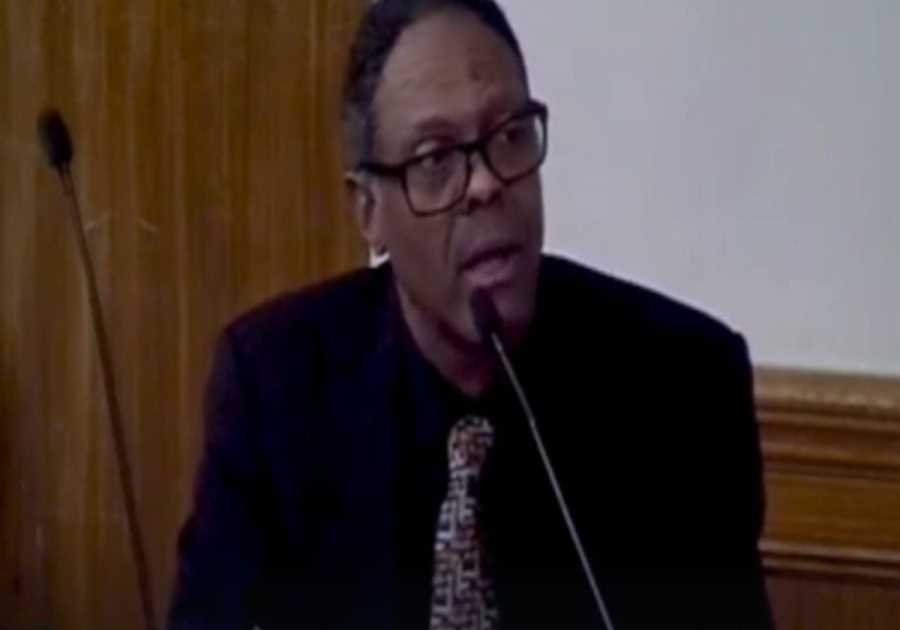Mustafa Hassona/Anadolu via Getty Images
- Internet connectivity in Gaza is plummeting.
- Power outages and damage to telecommunications infrastructure have impacted access.
- Activists and the UN say it is impacting Palestinians' ability to document Israel's bombardment.
When Hamas committed a wave of devastating terror attacks against Israeli civilians, the world was horrified by the flood of graphic social media footage and personal testimonies that quickly spread across the internet.
But, in Gaza, where internet connectivity is plummeting, digital rights activists and the UN are expressing concerns for Palestinians' ability to convey the devastation caused by Israeli retaliatory actions to the outside world.
They say that with information warfare becoming an increasingly important front for the war, the collapse in internet access has created a David versus Goliath situation for Gaza's influencers and citizen journalists.
'A near-total internet blackout in Gaza'
More than 1,300 Israelis died in Hamas' surprise terrorist attacks, according to the Israel Defense Forces. Over 3,000 Palestinians have died in Gaza in retaliatory strikes, the Palestinian Health Ministry said.
Gaza's already flimsy internet connectivity has been severely impacted by Israel's strikes, according to several outage-detection models.
Doug Madory, the director of internet analysis for the network observability platform Kentik, told Insider in an email: "We're seeing a near-total internet blackout in Gaza."
He added: "We see very little internet traffic coming and going from Gaza as compared to prior to October 7th."
Cloudflare Radar, which provides insight into internet usage, said on Monday that its traffic-detection model shows that internet disruption in the Gaza Strip is clearly apparent.
In certain parts of Gaza, which has a population of more than two million people, internet traffic has plummeted by as much as 70% compared to pre-conflict levels, it said.
Last Friday, NetBlocks, a watchdog organization that monitors the governance of the internet, noted a steep decline in Gaza's internet connectivity.
And data from the Internet Outage Detection and Analysis (IODA) project at Georgia Tech indicates a significant collapse in connectivity coinciding with the onset of the conflict.
Amanda Meng, a research scientist working on the project, told Insider that active probing involves sending a "ping" to Gaza and expecting to receive a "pong" from Palestinian routers.
Currently, less than 20% of networks in Gaza are responding to these probes, a stark drop from the previous 90% before the conflict began, the project shows.
Cellular data is down too
In a follow-up email, Meng said that their data most likely reflects a decline in fixed-line internet connections.
But access to the typically slow and insecure 2G cellular data, which Gaza is reliant on, also appears to be limited.
Israeli strikes have damaged buildings containing telecommunications installations, destroying two of the three lines for mobile communications, according to the United Nations Office for the Coordination of Humanitarian Affairs (OCHA).
OCHA said the strikes have left just one line working — Paltel, the Palestinian Telecommunications Company.
That line also appears to have disrupted service, with Paltel warning last week that any more disruption to lines connecting Gaza to the outside world could lead to a total communications blackout.
In a response to Insider via WhatsApp, an Israel Defense Forces spokesperson said: "In response to Hamas' barbaric attacks, the IDF is operating to dismantle Hamas military and administrative capabilities. "
The IDF did not specify whether the buildings had been targeted but said the IDF follows international law and takes feasible precautions to mitigate civilian harm.
The UN says this will 'hinder efforts' to document the conflict
The lack of internet connectivity is making it harder for Gazans to stay connected with each other, as well as follow the news.
It's also making it harder to document potential human-rights violations, according to the United Nations Human Rights Office spokesperson Liz Throssell.
Throssell told Insider in an email that a lack of internet connectivity will "invariably hinder efforts to monitor, document and report, including on possible violations and abuses of international humanitarian and human rights law."
Marwa Fatafta, who leads Access Now's work on digital rights in the MENA region, agreed, telling Insider that she fears people won't fully be able to broadcast "the severe impact of Israeli strikes" to the outside world.
In the early days of the conflict, Gazans with internet connections and power could post their experiences to X, TikTok, and Instagram, amassing views and avoiding media gatekeepers.
Fatafta said ordinary Palestinians were able to use social media to challenge some of the messaging coming from the Israel side.
Insider has reported on how Israel's Ministry of Foreign Affairs is running dozens of ads on games like Angry Birds and social media platforms like YouTube and X, formerly Twitter, justifying its heavy air bombardment of Gaza.
Posts on X from Israel's official account, as well as the IDF, regularly receive hundreds of thousands, if not millions, of views.
Hamas, the militant group that rules the Gaza Strip after winning local elections in 2006, and which is barred from many social media outlets, is rapidly building a following on Telegram, getting hundreds of thousands of views on its videos, CNN reported.
This week, the IDF and Hamas pointed the blame at each other over who was responsible for the Al-Ahli Hospital blast.
Footage provided by ordinary Palestinians would be valuable in these circumstances, offering more material to examine and potentially serving to "debunk state-sponsored disinformation," Fatafta argued.
She said the fact that there is "no information coming up out of Gaza" has created a lopsided situation, whereby people are unable to get a wide swathe of perspectives on the conflict.
'This is crucial because it's a very violent situation'
Jalal Abukhater, a Palestinian writer who works as an advocacy officer for 7amleh: The Arab Center for Social Media Advancement, told Insider that important firsthand perspectives from within Gaza are increasingly being left out of the global conversation.
"You know, the regular influencers who are telling what they're experiencing," he said. "For example, the girls who are saying this is what it's like without water, horrifying footage from regular people in Gaza just telling their stories on Instagram."
He said at the start of the conflict, people could charge their phones, connect to the internet, and broadcast to the world.
But, now, he fears that the fall in internet connectivity is creating a blindspot.
"This is crucial because it's a very violent situation," he said.
Abukhater said 7amleh is trying to help Palestinians get on the internet by asking Palestinian companies to release free data bundles and by planning an initiative to buy e-Sims for people in Gaza to connect them to Israeli networks.
But in the meantime, he said, the challenge feels insurmountable.
"Death is prevalent all over the Gaza Strip and people are really not able to get out the information," he said. "The world must see it."
Read More
By: [email protected] (Joshua Zitser)
Title: As internet connectivity plummets in Gaza, ordinary Palestinians struggle to compete with Israel's narrative of the war
Sourced From: www.businessinsider.com/gazas-internet-crisis-un-activists-fear-near-total-blackout-2023-10
Published Date: Thu, 19 Oct 2023 14:11:06 +0000
.png)





